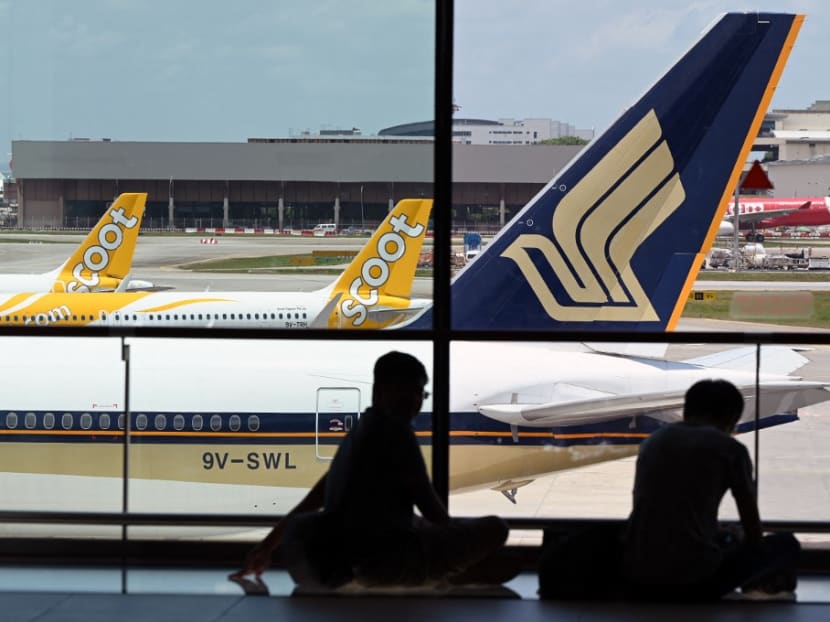Visitors, long-term pass holders with recent India travel history to be barred from S’pore entry, transit
SINGAPORE — All long-term pass holders and short-term visitors with recent travel history to India will not be allowed entry or transit through Singapore, Education Minister Lawrence Wong announced on Thursday (April 22).

A Singapore Airlines plane is parked beside Scoots passenger planes on the terminal tarmac at Changi International Airport in Singapore on March 15, 2021.
SINGAPORE — All long-term pass holders and short-term visitors with recent travel history to India will not be allowed entry or transit through Singapore, Education Minister Lawrence Wong announced on Thursday (April 22).
The new rule will take effect from Saturday and will also affect those who have previously obtained approval from the authorities to enter the country.
In addition, all travellers with recent travel history to India who have yet to complete their 14-day stay-home notice by 11.59pm on April 22 will need to complete their extra seven-day notice at dedicated facilities, instead of their place of residence.
They will be tested on arrival, on day 14 of their stay-home notice, and again before the end of their 21-day notice period.
Currently, these travellers who are serving their notice may choose to complete the last seven days in their place of residence.
The stricter measures come two days after the Government cut entry approvals for travellers who are not Singapore citizens or permanent residents in the light of a worsening situation in India and the emergence of new variants of the coronavirus.
The authorities had also increased the stay-home notice periods for these travellers from India to 21 days, up from 14 days previously.
India suffered its largest spike of new Covid-19 cases on Thursday, recording more than 310,000 cases amid reports of its health services under severe strain.
This was also the largest increase of coronavirus infections in a single day in the world since the start of the pandemic, as fears over the new wave of infections in one of the world’s most populous countries intensified.
The previous single-day record for new cases was held by the United States in January, when around 297,000 cases were detected.
Mr Wong, who co-chairs the Government's Covid-19 task force, said: “We've been monitoring the Covid-19 situation in India very closely and all of you know that we made a move to tighten the arrivals from India on Tuesday.
“But since then, the situation in India has continued to worsen. Within our community, as you heard, we've also picked up a few cases in the dormitories,” he said, referring to a cluster of new cases at Westlite Woodlands Dormitory on Wednesday.
While there is no evidence that these cases are linked to India or the new strain in India, Mr Wong said that the risk of re-infection among recovered workers is of much concern.
“These are workers that were previously infected, but are now getting infected again,” he said.
As many of the arrivals from India are workers in the construction, marine and process sectors, Mr Wong warned that there was a risk of a leak of the virus into the dormitories, which would set off another wave of infection.
.embed-container { position: relative; padding-bottom: 56.25%; height: 0; overflow: hidden; max-width: 100%; } .embed-container iframe, .embed-container object, .embed-container embed { position: absolute; top: 0; left: 0; width: 100%; height: 100%; }










